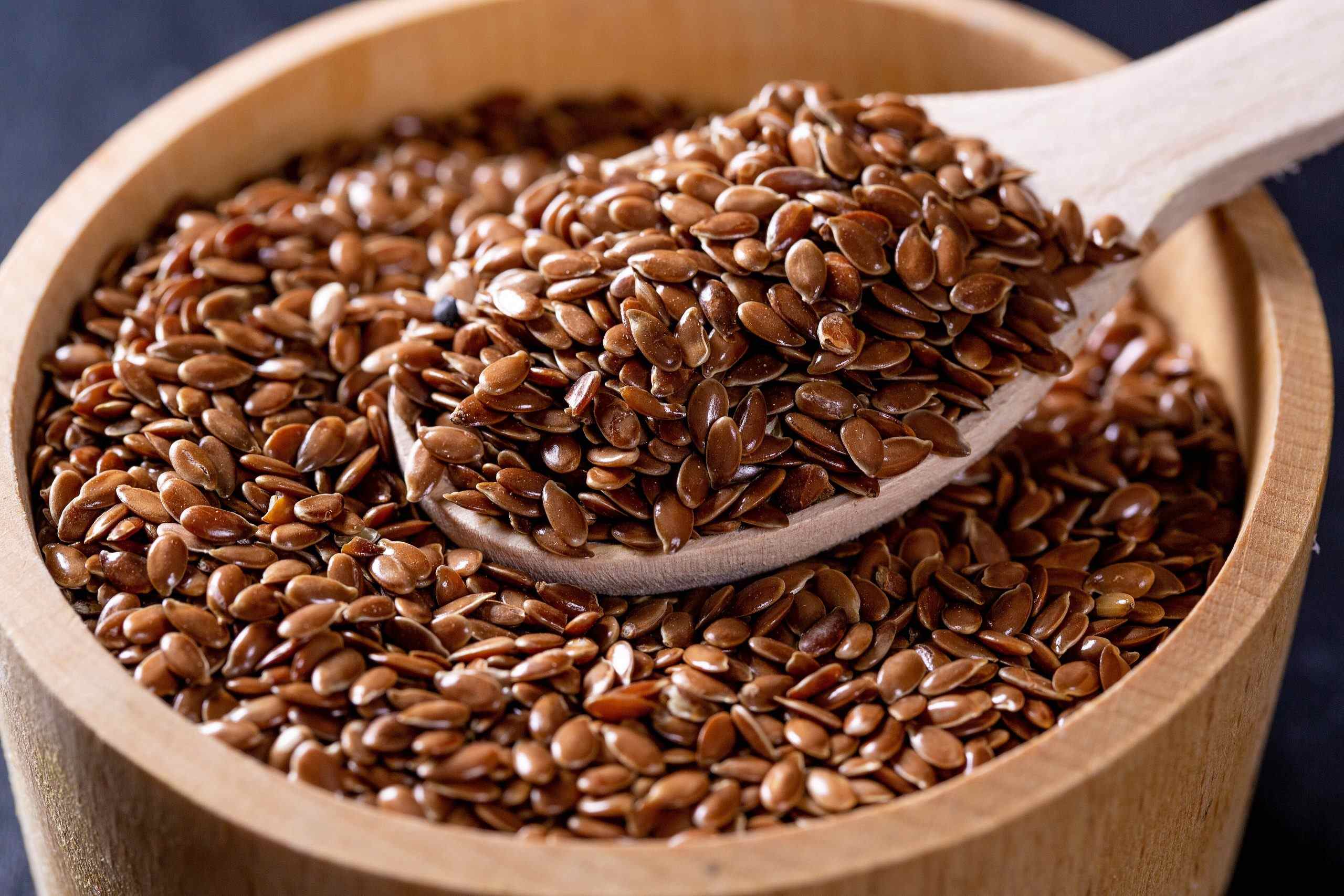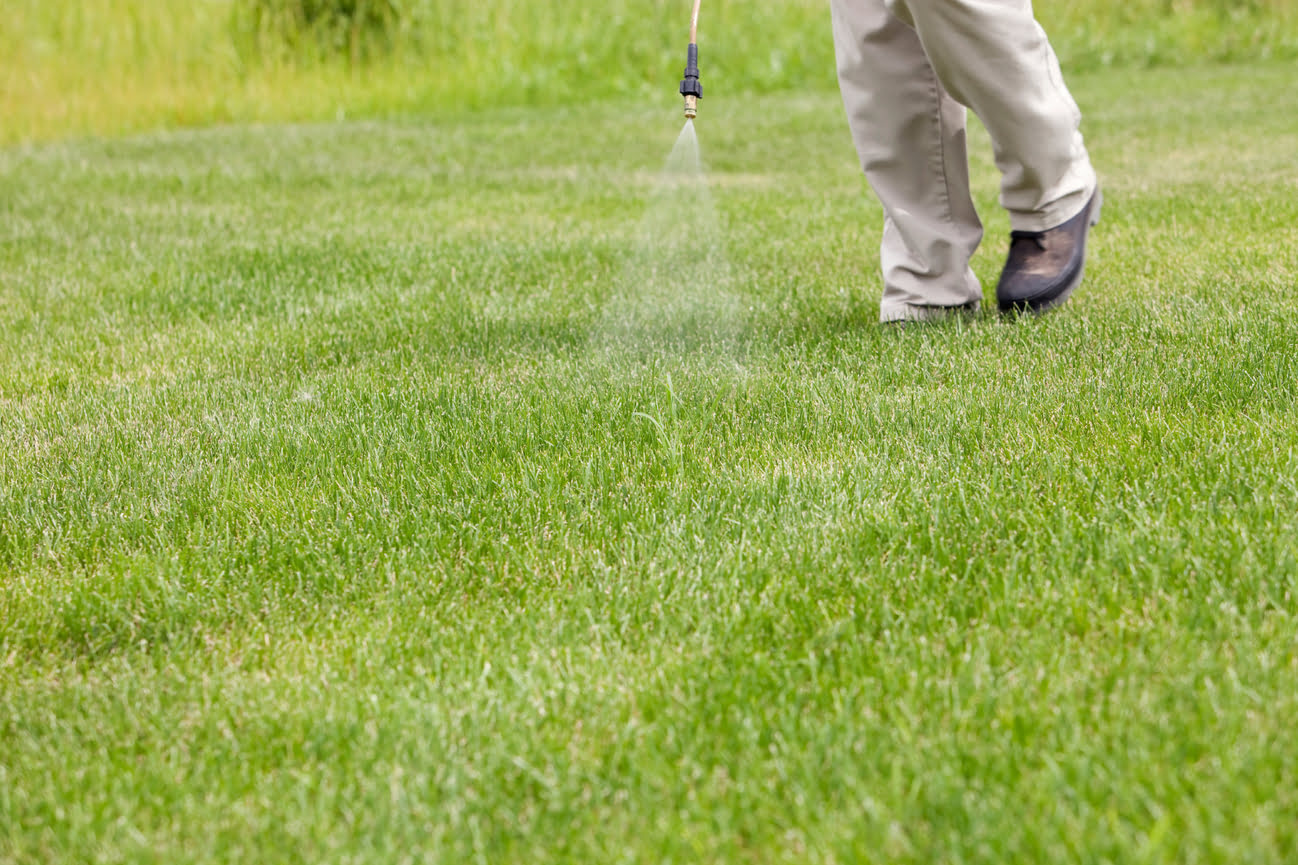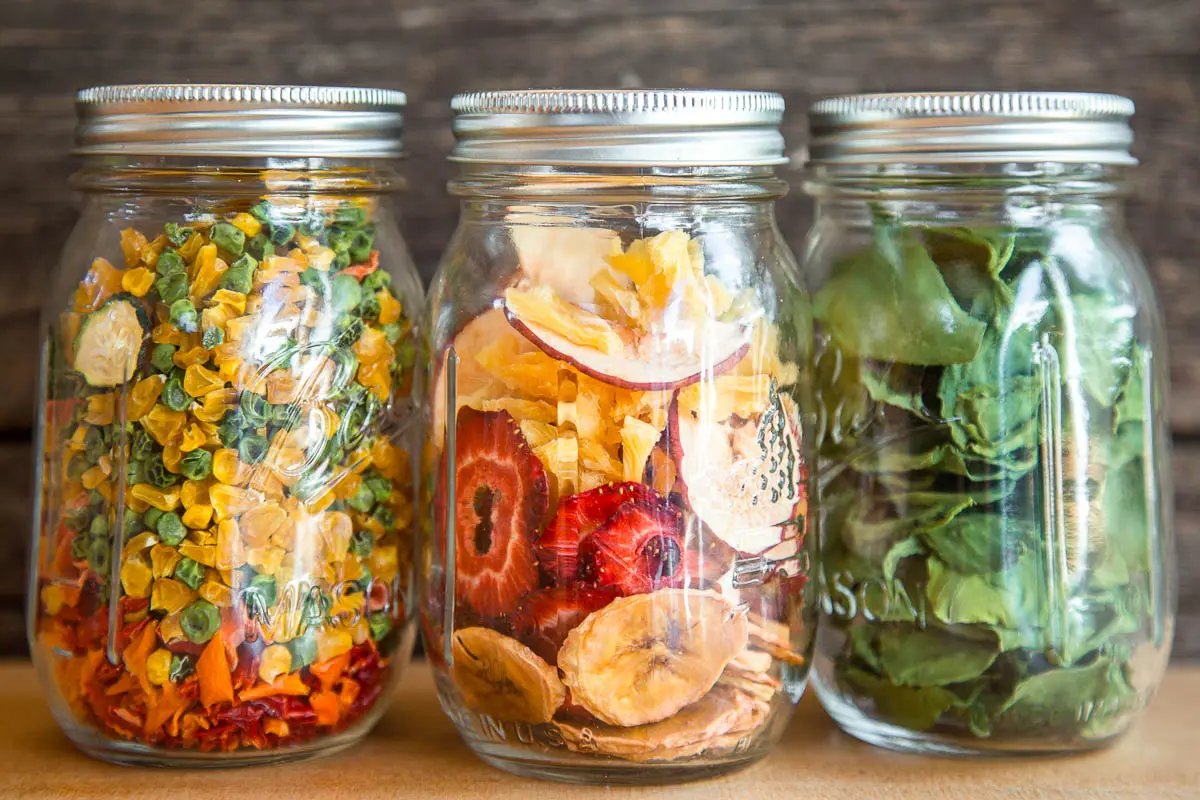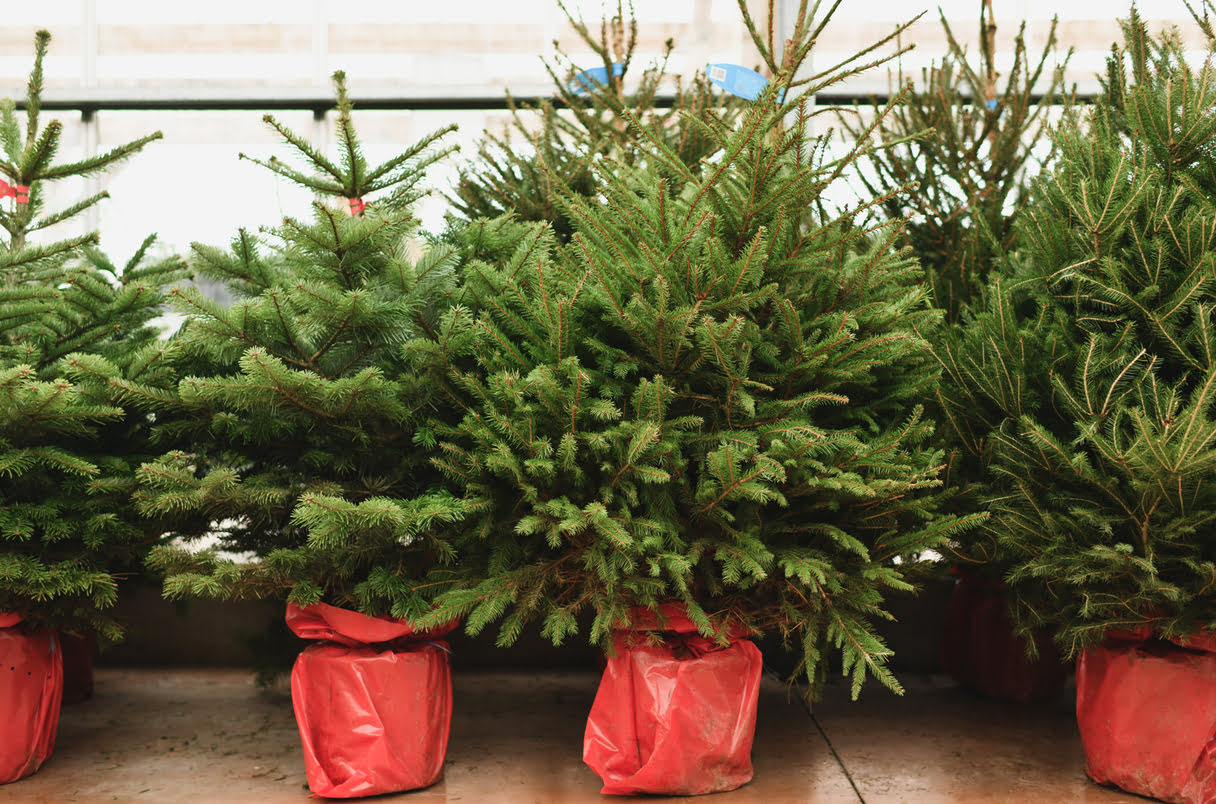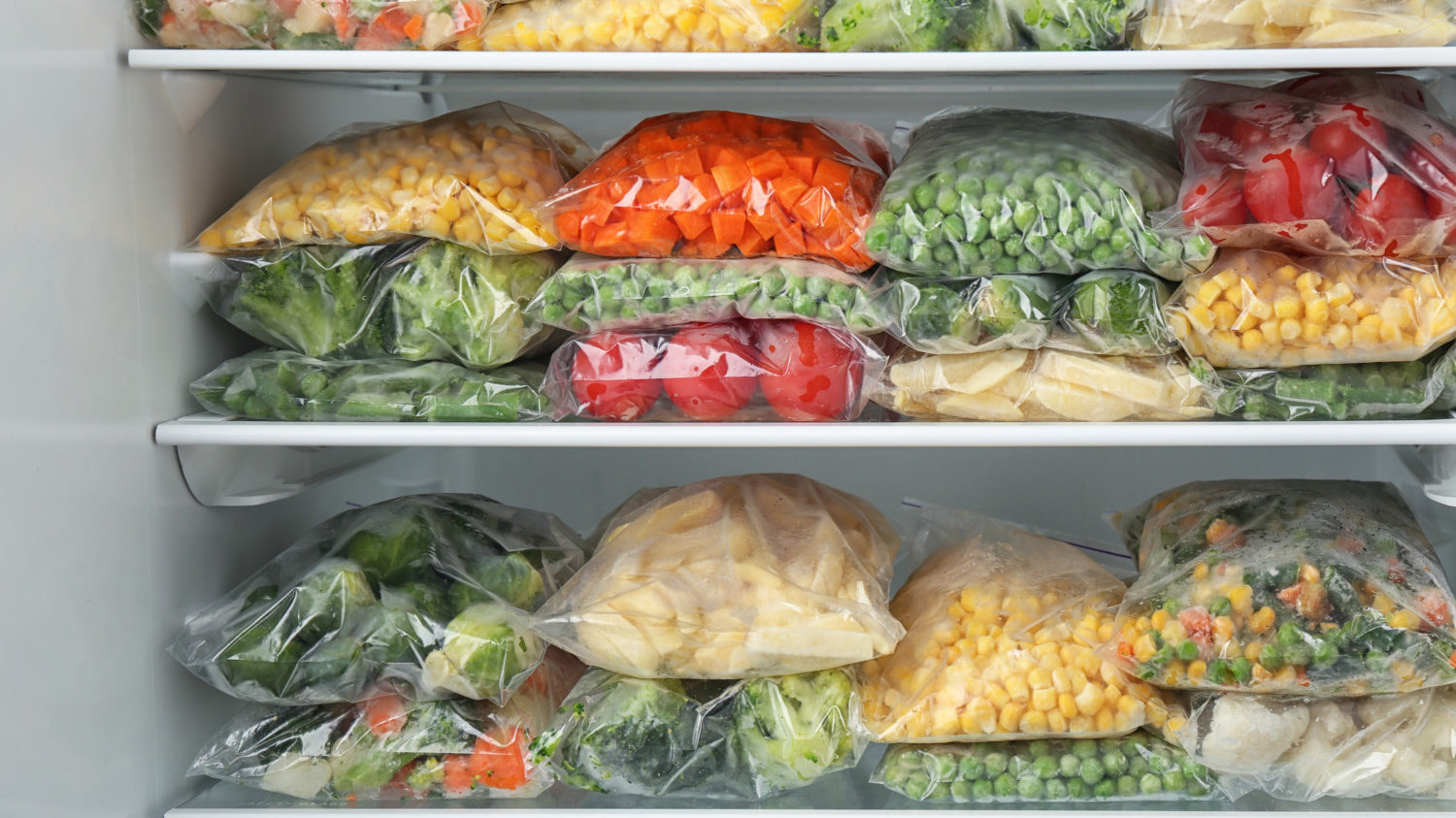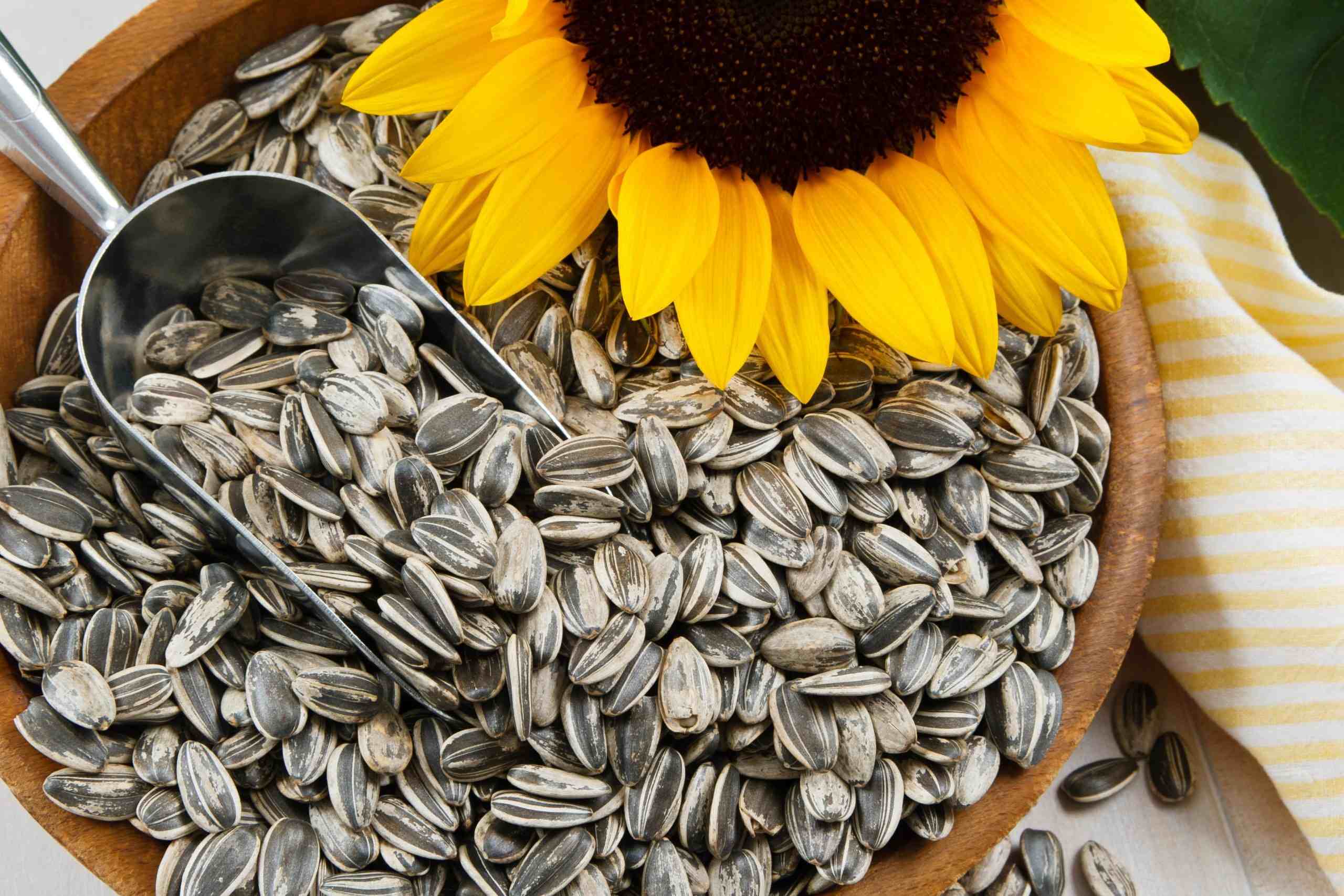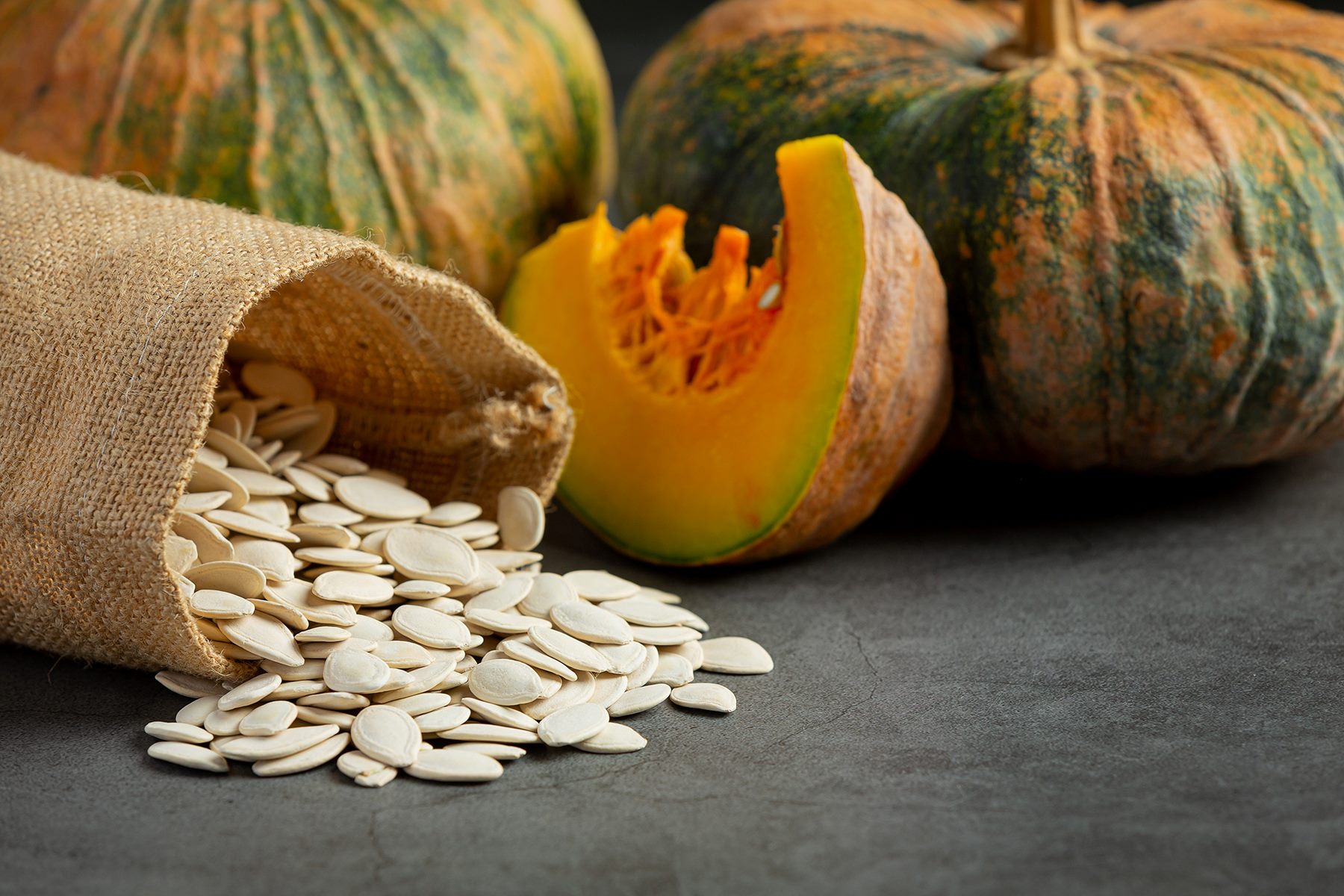Home>Gardening News and Trends>Latest News>How Long Do Fresh Herbs Last
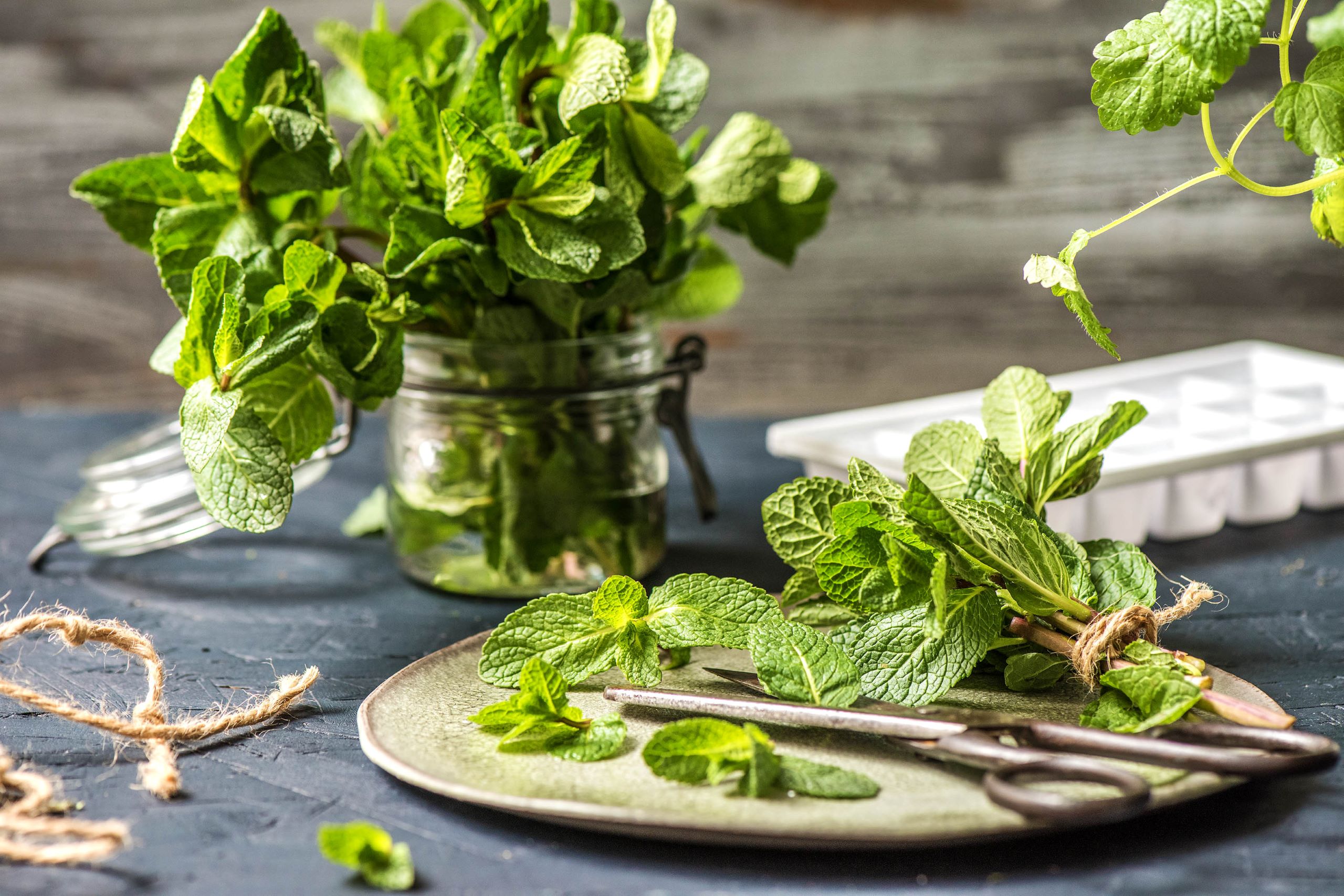

Latest News
How Long Do Fresh Herbs Last
Published: September 24, 2023
Learn how long fresh herbs last and keep your recipes flavorful with the latest news and tips on preserving herbs.
(Many of the links in this article redirect to a specific reviewed product. Your purchase of these products through affiliate links helps to generate commission for Chicagolandgardening.com, at no extra cost. Learn more)
Table of Contents
Introduction
Fresh herbs are a staple in any kitchen, adding incredible flavor and aroma to a wide range of dishes. Whether you’re an experienced chef or a home cook, having a supply of fresh herbs on hand can elevate your culinary creations to new heights. However, it’s important to understand that fresh herbs have a limited shelf life, and if not stored properly, they can deteriorate quickly. So, how long do fresh herbs last, and what factors can affect their shelf life?
Several factors contribute to the longevity of fresh herbs, including their type, freshness at the time of purchase, and how they are stored. Each herb has its own unique characteristics, and some may last longer than others. Understanding these factors and implementing proper storage techniques can help you maximize the shelf life of your fresh herbs and ensure that they remain flavorful and vibrant for as long as possible.
In this article, we will explore the various factors that affect the shelf life of fresh herbs, provide insights into how to store them properly, discuss the estimated shelf life of common herbs, and offer tips for maximizing the lifespan of your herbal treasures. By following these guidelines, you can extend the usability of your fresh herbs and minimize waste, ultimately saving you money and enhancing the flavors of your dishes.
Factors that Affect the Shelf Life of Fresh Herbs
When it comes to the shelf life of fresh herbs, several factors come into play. Understanding these factors can help you determine how long your herbs will last and how to keep them fresh for as long as possible.
The first factor is the freshness of the herbs at the time of purchase. If you have the opportunity, opt for freshly picked herbs from your local farmers’ market or grow your own herbs at home. Freshly harvested herbs tend to have a longer shelf life compared to those that have been sitting on the grocery store shelves for a while.
The second factor is the type of herb. Some herbs, such as basil and parsley, are more delicate and have a shorter shelf life compared to heartier herbs like rosemary and thyme. Delicate herbs should be used within a few days, while heartier herbs can last up to a couple of weeks if stored properly.
Next, the storage conditions play a crucial role in maintaining the freshness of your herbs. Herbs are highly perishable and should be stored in the refrigerator. It’s recommended to wrap them loosely in a damp paper towel or store them in a plastic bag with holes to maintain moisture. This prevents wilting and extends their lifespan.
Exposure to light can also affect the shelf life of fresh herbs. Herbs should be stored in a dark environment or in opaque containers to prevent degradation due to light exposure. Direct sunlight can cause herbs to wilt and lose their flavor quickly.
Furthermore, the cleanliness of the herbs can impact their shelf life. Before storing herbs, make sure to remove any damaged or wilted leaves, as these can promote spoilage. Also, rinsing the herbs gently with cold water and patting them dry before storage can help remove any dirt or contaminants that may accelerate decay.
The final factor to consider is the humidity level. Herbs thrive in a slightly humid environment, so it’s important to maintain the right balance. If the humidity is too high, the herbs may become damp and susceptible to mold. If it’s too low, they may dry out quickly. Storing herbs in an airtight container or using a humidity-controlled drawer in the refrigerator can help maintain the optimal humidity level.
By considering these factors and implementing proper storage practices, you can significantly extend the shelf life of your fresh herbs. This ensures that you have flavorful and aromatic herbs on hand whenever you need them, enhancing the taste and aroma of your dishes.
How to Store Fresh Herbs Properly
Proper storage is key to preserving the freshness and flavor of fresh herbs. By following these guidelines, you can ensure that your herbs stay vibrant and delicious for as long as possible:
- Start by trimming the ends of the herb stems. This helps the herbs absorb water and stay hydrated.
- If the herbs came in a bunch with an elastic band, remove the band to prevent the herbs from getting crushed or bruised.
- Give the herbs a gentle rinse under cold water to remove any dirt or debris. Pat them dry with a paper towel. Excess moisture can promote rot.
- Decide whether you want to store the herbs as whole sprigs or as chopped leaves. For whole sprigs, wrap them loosely in a damp paper towel. For chopped leaves, place them in an airtight container lined with a slightly damp paper towel.
- If you prefer to use a plastic bag, make sure to punch some holes in it to allow for proper air circulation. Alternatively, you can use a reusable produce bag.
- Label the storage container or bag with the herb’s name and the date of purchase. This helps you keep track of the freshness and avoid using stale herbs.
- Store the herbs in the refrigerator’s crisper drawer or in another cool area. The ideal temperature is between 32°F (0°C) and 40°F (4°C).
- Check on the herbs regularly and remove any wilted or spoiled leaves. This prevents the decay from spreading to the rest of the herbs.
It’s worth noting that some herbs, like basil and cilantro, are better stored at room temperature. To do this, trim the ends, place them in a glass or jar with water like a bouquet, and loosely cover the herbs with a plastic bag. Change the water every few days to keep it fresh.
Remember, fresh herbs are delicate and can easily wilt or deteriorate if not stored properly. By following these storage tips, you can enjoy the full flavor and freshness of your herbs, making every dish you create a culinary delight.
Common Fresh Herbs and Their Estimated Shelf Life
Understanding the estimated shelf life of common fresh herbs can help you plan your meals and make the most out of your herb supply. While these estimations can vary based on factors like freshness and storage conditions, here are some general guidelines for the shelf life of common herbs:
- Basil: Basil is a delicate herb that lasts around 3 to 5 days when stored properly. To maximize its shelf life, store it in a jar of water at room temperature, changing the water every few days.
- Parsley: Parsley typically stays fresh for about 1 to 2 weeks in the refrigerator. Store it as you would other delicate herbs – loosely wrapped in a damp paper towel or in an airtight container lined with a damp paper towel.
- Cilantro: Cilantro has a shorter shelf life and usually lasts about 1 week. To store cilantro, trim the ends and place it in a glass of water, covering it loosely with a plastic bag.
- Rosemary: Rosemary is a heartier herb that can last up to 2 weeks when stored correctly. Keep it wrapped loosely in a damp paper towel or placed in an airtight container in the refrigerator.
- Thyme: Thyme has a similar shelf life to rosemary, lasting around 1 to 2 weeks. Store it as you would rosemary – wrapped loosely in a damp paper towel or in an airtight container in the refrigerator.
- Mint: Mint can last for approximately 1 week when stored properly. Trim the stems, place them in a glass of water, and loosely cover with a plastic bag.
- Oregano: Oregano can stay fresh for up to 2 weeks when stored in a cool and dry place. You can also dry the leaves to extend its shelf life.
- Dill: Dill has a shorter shelf life, usually lasting about 1 week. Store it in the refrigerator, loosely wrapped in a damp paper towel or in an airtight container.
It’s important to note that these estimations are not set in stone and can vary depending on factors such as freshness at the time of purchase and storage conditions. Regularly check the herbs for any signs of spoilage and use your judgment to determine their usability.
By understanding the estimated shelf life of common fresh herbs, you can better plan your meals and utilize these herbs while they are at their peak freshness and flavor. This ensures that your culinary creations are always bursting with aromatic and delicious herbal goodness.
Signs of Spoiled Fresh Herbs
It’s essential to be able to identify the signs of spoiled fresh herbs to ensure that you’re using them when they are still safe and flavorful. Here are some common indicators that your herbs may have gone bad:
- Discoloration: If you notice any significant discoloration, such as darkening or browning of the leaves, it’s a sign that the herbs have started to spoil.
- Wilting: Wilted or mushy leaves indicate that the herbs have lost their freshness and are no longer suitable for consumption.
- Mold or fungus: The presence of mold or fungus is a clear indication that the herbs have spoiled. Discard them immediately.
- Unpleasant odor: Fresh herbs should have a pleasant aroma. If you detect a musty or rotten smell, it’s a strong indication that the herbs are no longer fresh.
- Sliminess or excessive moisture: Herbs should feel relatively dry to the touch. If they are slimy or excessively moist, it’s a sign of decay and bacterial growth.
It’s important to note that herbs may start to lose their flavor and potency before showing visible signs of spoilage. If you notice a significant decrease in aroma or flavor, it may be a good idea to replace them with fresh herbs to ensure the best culinary experience.
If you encounter any of these signs, it’s best to discard the spoiled herbs. Consuming spoiled herbs can lead to foodborne illnesses and adversely affect the taste and quality of your dishes.
Regularly inspect your herbs for any signs of spoilage, especially as they approach the end of their estimated shelf life. By being vigilant and knowing when herbs have gone bad, you can ensure that you’re always using fresh, safe, and flavorful ingredients in your cooking.
Tips for Maximizing the Shelf Life of Fresh Herbs
To make the most out of your fresh herbs and extend their shelf life, here are some valuable tips to keep in mind:
- Buy fresh herbs: Whenever possible, choose freshly harvested herbs. This ensures that they have a longer shelf life compared to herbs that have been sitting on store shelves for an extended period.
- Handle with care: Handle herbs gently to avoid damaging the leaves and stems, as bruising can accelerate spoilage.
- Trim the stems: Before storing, trim the ends of the herb stems. This enables better water absorption and helps keep the herbs fresh for longer.
- Proper storage: Store herbs in the refrigerator to maintain their freshness. Wrap them loosely in a damp paper towel or place them in an airtight container lined with a damp paper towel to ensure they stay moist without becoming soggy.
- Prevent direct light: Protect herbs from direct light exposure by storing them in opaque containers or placing them in a dark area of the refrigerator. Light can cause herbs to wilt and lose their flavor quickly.
- Avoid overcrowding: Avoid overcrowding the herbs in the storage container or bag. Providing ample space allows for proper air circulation, reducing the risk of moisture build-up and mold development.
- Regularly check for spoilage: Periodically inspect the herbs for any signs of spoilage, such as discoloration, wilting, mold, or an unpleasant odor. Remove any spoiled herbs immediately to prevent the decay from spreading.
- Consider freezing: If you have an abundance of fresh herbs, consider freezing them for longer-term storage. They can be chopped and placed in ice cube trays filled with water or oil, or they can be frozen as whole leaves in airtight freezer bags.
- Grow your own herbs: For a constant supply of fresh herbs, consider growing them at home. By having them readily available, you can harvest as needed, ensuring the highest quality and maximum shelf life.
Adopting these tips not only helps maximize the shelf life of your fresh herbs but also ensures that you always have flavorful and aromatic herbs on hand to enhance the taste of your dishes. With a little care and attention, you can make the most out of your herb collection and minimize waste.
Conclusion
Fresh herbs are a wonderful addition to any kitchen, bringing vibrant flavors and aromas to a wide range of dishes. By understanding the factors that affect the shelf life of herbs and implementing proper storage techniques, you can maximize their freshness and enjoy their incredible taste for as long as possible.
Factors such as the freshness of the herbs at the time of purchase, the type of herb, storage conditions, exposure to light, and humidity levels all play a role in determining how long your herbs will last. By considering these factors and following the tips outlined in this article, you can maintain the quality and flavor of your herbs.
Knowing the signs of spoiled herbs is crucial to ensure that you are using them when they are still safe and flavorful. Discoloration, wilting, mold, unpleasant odor, and excessive moisture are all indicators that the herbs have started to deteriorate and should be discarded.
By taking the necessary steps to maximize the shelf life of your fresh herbs, such as buying fresh herbs, handling them with care, trimming the stems, and storing them properly, you can extend their usability and reduce food waste. Additionally, freezing or growing your own herbs can provide a constant supply of fresh flavors to enhance your culinary creations.
So, the next time you purchase or harvest fresh herbs, remember to store them correctly, regularly check for spoilage, and utilize them efficiently to make your meals truly remarkable. With these tips in mind, you can make the most out of your fresh herb collection and elevate your cooking to new heights of deliciousness.
